Ever wonder what happens to all of those flowers that don't sell in grocery stores?
One do-gooder in Oregon did, too, which is how The Bloom Project came to be: The nonprofit organization collects unsold flowers and repurposes them into cheerful bouquets, which eventually brighten up the rooms of patients in hospice care. That's a lot better than the flowers ending up in the garbage (or even being composted, as would be the case in eco-friendly Portland!).
Inspired in part by chefs who had started redistributing excess food to the hungry and homeless, founder Heidi Berkman got the idea, after going through the hospice process with a family member.
"During that time, someone thought to send flowers. We probably spent 15 minutes talking about them— it really lightened the atmosphere," she told TODAY.
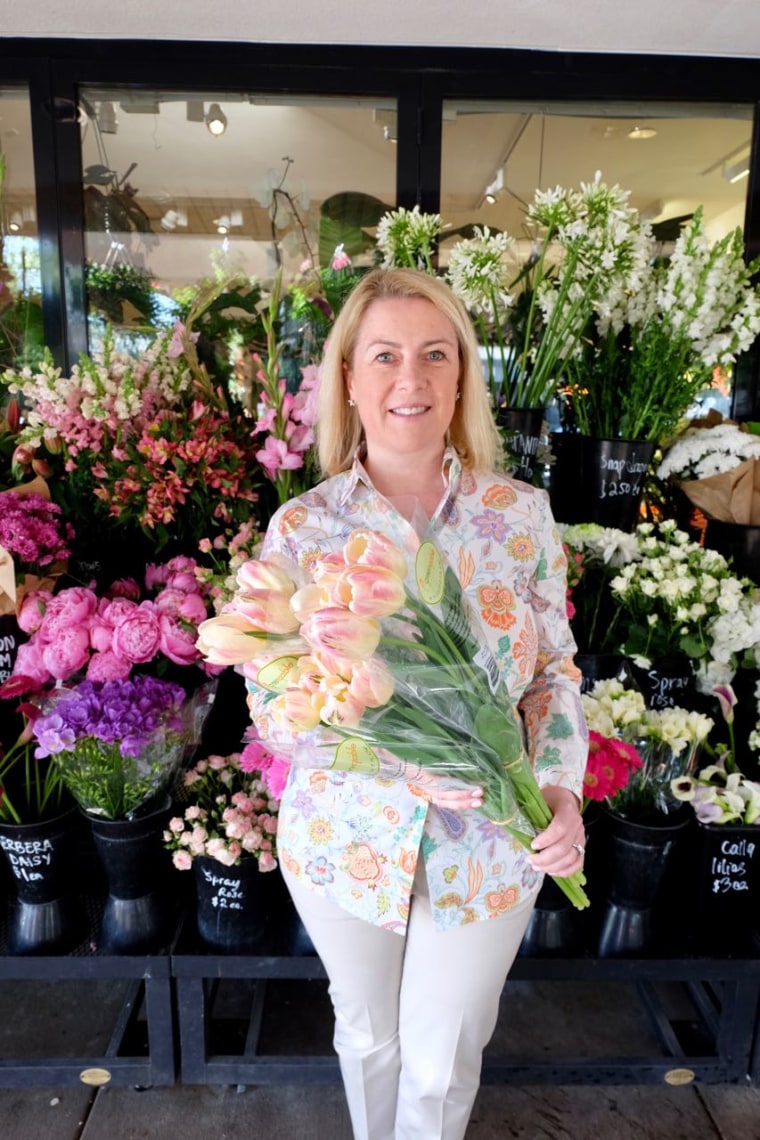
Literally out of her garage, Berkman, a former corporate meeting and events planner, started the first chapter of The Bloom Project back in 2007, in Bend, Ore. It quickly grew and added a Portland chapter as well.
Today, it has about 300 volunteers, and turns out roughly 40,000 bouquets a year for patients.
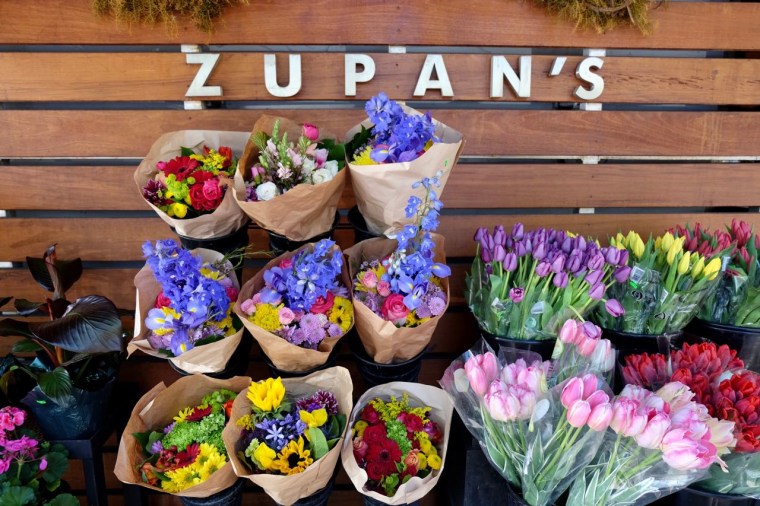
Both national supermarkets, like Trader Joe's, and regional ones, such as Zupan's and New Seasons, donate flowers on a weekly basis, in addition to wholesale florists. Some growers have even started donating fresh-off-the-farm cuts. (Event and wedding flowers aren't accepted because, with all the heat, sun and candles they're exposed to, they wilt too quickly.)
Mother's Day, of course, brings a windfall of blooms; the holidays, lots of holly and berries; and Valentine's Day, an overflow of roses.
"I'll never forget our first Valentine's Day," Berkman said. "The Trader Joe's in town had just opened and they didn't know how many flowers to order. We ended up with miles of red roses — buckets and buckets surrounding us. It was a 'careful what you wish for' kind of thing!" she joked.
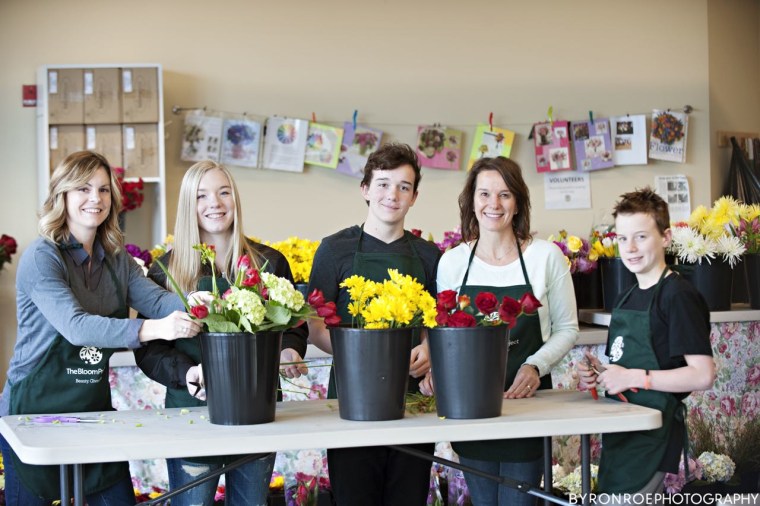
Roughly half the flowers make the cut into the final bouquets: Volunteers go through a 20-hour training process, and learn to identify which blooms have another five to seven days of freshness left in them. (Pro tip: Lilies, roses, alstroemeria and carnations are some that last the longest, they told us.)
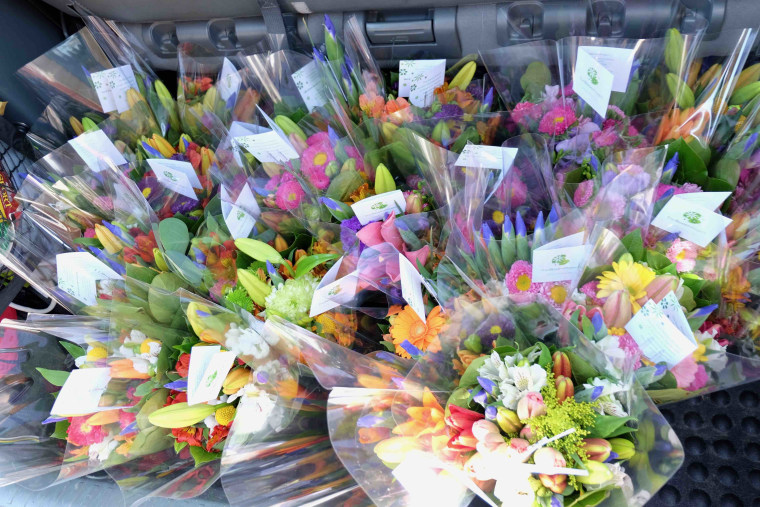
Then, they arrange the fresh bouquets, which are delivered via social workers, healthcare workers and clergy people, for privacy reasons.
Even though the volunteers and patients never meet, they get loads of thankful calls and notes, many of which are on display in their (donated) workspace.
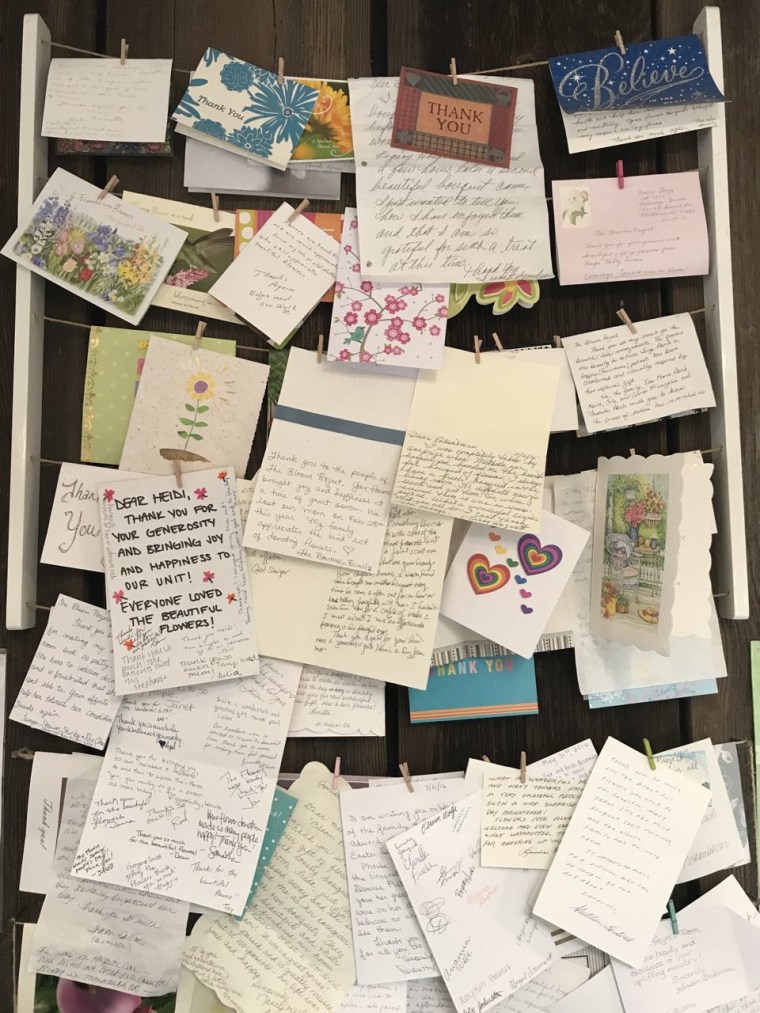
"We jokingly call it our 'paycheck wall,' " project manager Stacy Addison said.
Some of the patients, especially men, have never before received a bouquet of flowers, volunteer Melinda Jackman said, and others don't have any family left or nearby.
"We know it makes a difference — that someone is thinking about them," Bloom Project volunteer Melinda Jackman told TODAY. "Some are nonverbal, but they light up when a caregiver brings the flowers into the room."
The Bloom Project is working on expanding the model to San Francisco, and — they hope — other cities as well.
"To hear these patients' stories over and over again, you realize — we take flowers, to some degree, for granted," Berkman said. "They're something we can all benefit from."
Want to help The Bloom Project? Learn more or donate here.